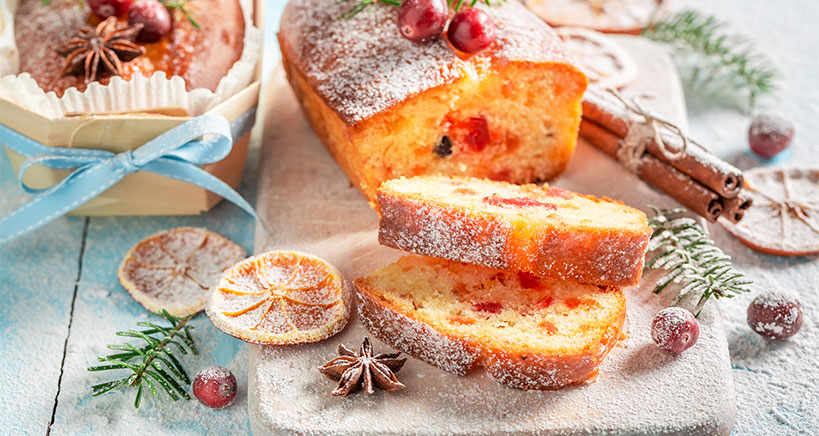
Fruitcake season is here, and with it, a golden opportunity for your restaurant to feature far out fruitcakes and attract the masses of holiday consumers to your eatery. While no one knows exactly how the dense, candied, nutty, sweet, and booze-soaked dessert became associated with the Christmas tradition, the fact is that customers wait all year long to indulge in the traditional treat. At the same time, they are ready and eager to sink their teeth into new and updated recipe.
From Fruitcake Classics to Flavorful Twists
Typically eaten by the slice and popularly given away as holiday gifts, new flavorful twists on the age-old dessert include recipes for fruitcake cookies, bars, mini-bites, shortbread, and even fruitcake waffles and donuts! Decadent no matter how they are prepared, let’s learn more about the culinary science and art of making magnificent fruitcakes. To do so, take off your apron, take a load off your feet, and prepare to take a journey into the past as we indulge in some fascinating fruitcake history…
History of Fruitcakes Across the Ages
Did you know that the modern-day fruitcake has been making the global rounds for millennium? Food historians have determined that the placing of cake loaves on the tombs of loved ones was customary as far back as ancient Egypt, over 3,000 years ago (perhaps as nourishment for the afterlife). But it was not until ancient Roman times that the fruitcake became popular and really took off. Touted for its portability and long shelf life – and hence frequently brought to the battlefields by Roman soldiers – the first fruitcakes were made of a pomegranate-pine nut-barley mash that was molded into a ring-shaped dessert.
Similarly, during the Middle Ages, fruited breads were widespread among Crusaders travelling the world and featured the addition of preserved fruits, spices, and honey.
Continue reading Holiday Fruitcakes for Your Restaurant Menu